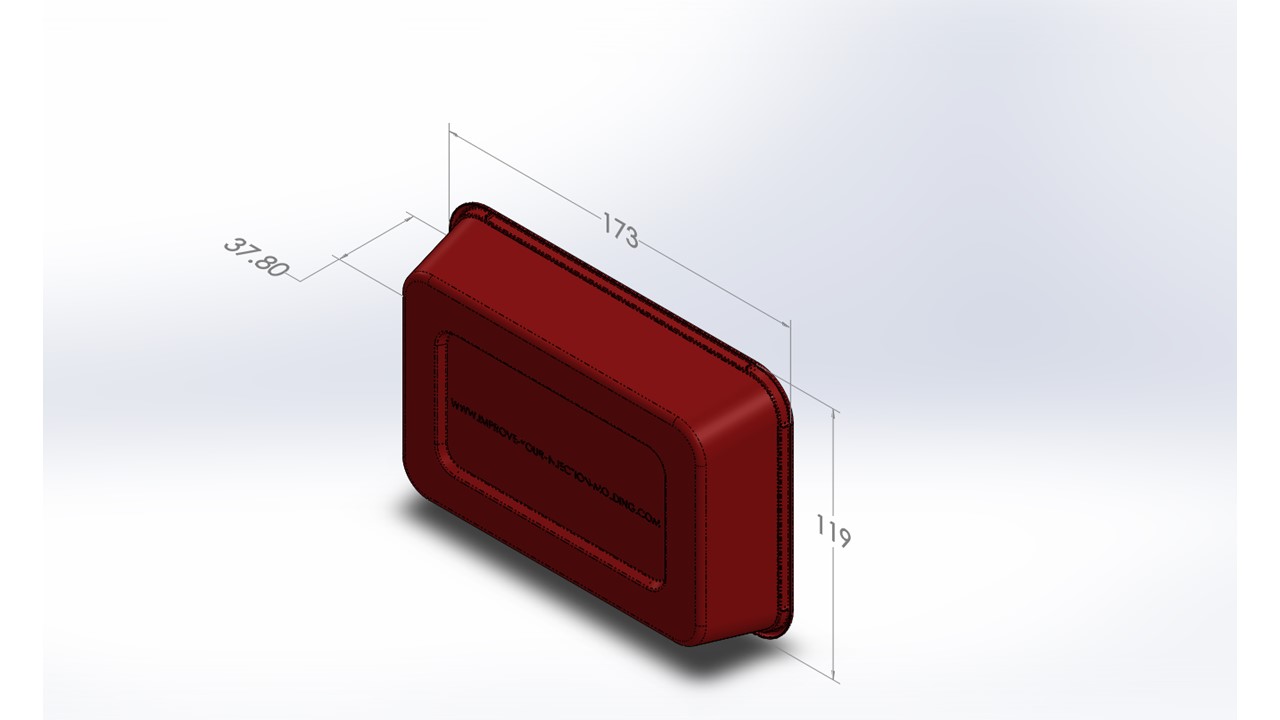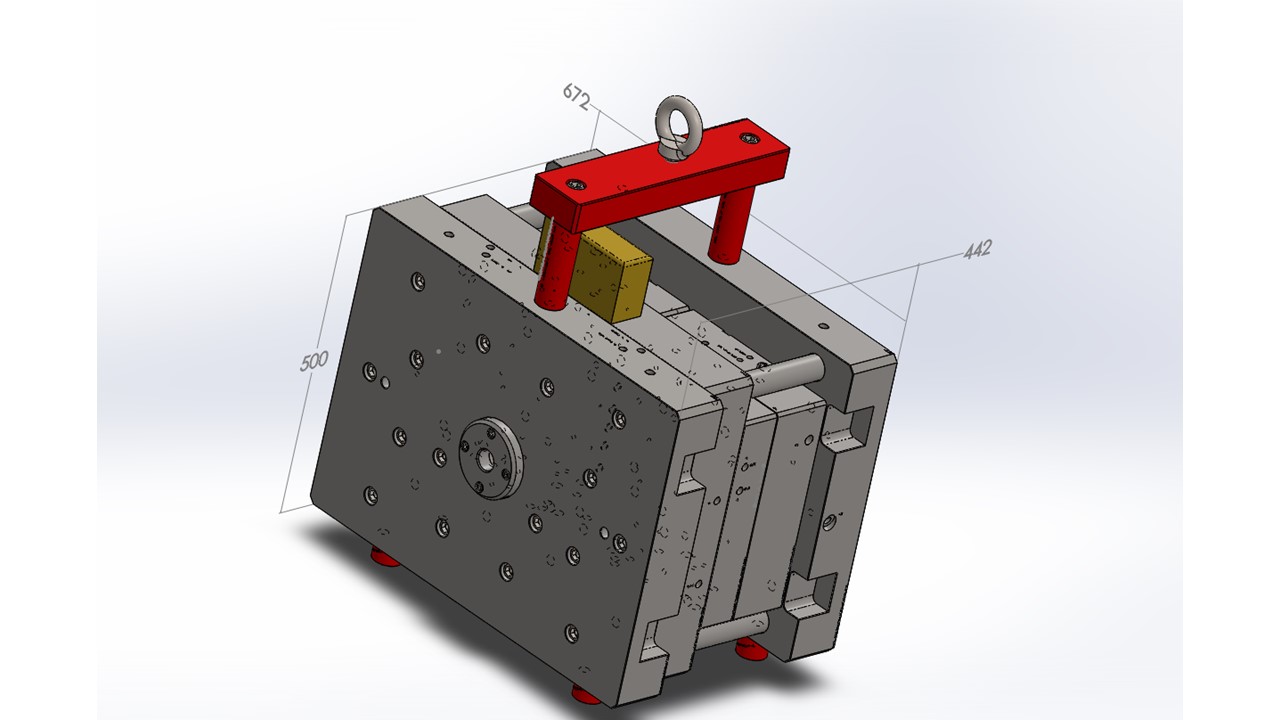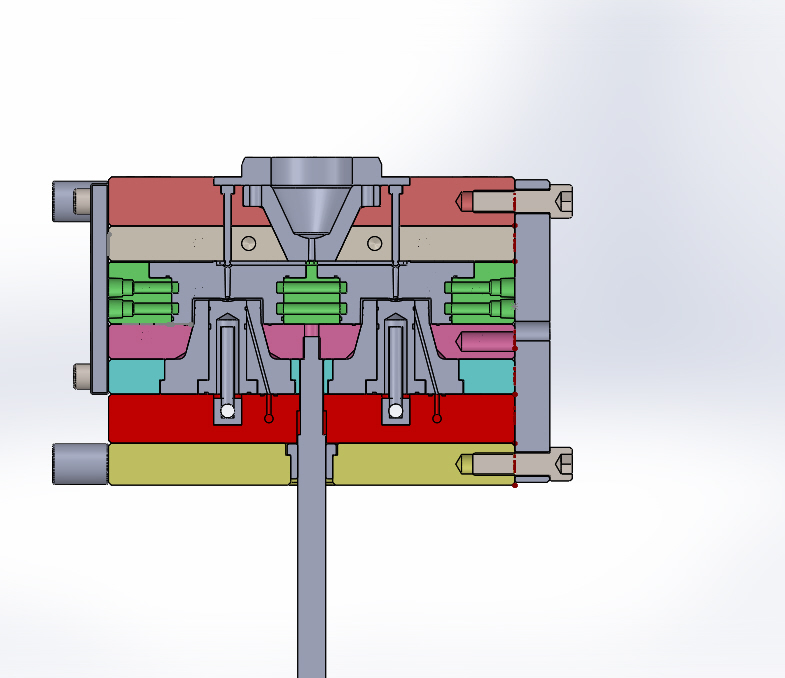- Home
- Lean Principles
- Machine Selection
- Mold Design
- Mold Interlocking
- Mold Making
- Plastic Material Technology
- Molding Process
- Plastic News
- What's New
- Privacy Policy
- Disclaimer
- Site Map
- Poll
- Polishing
- 3D Rapid Prototyping
- Molding Companies
- Contact Us
- Proven Thinwall Packaging Mold Designs For Sale
- MOLD WEIGHT CALCULATOR
- HOT RUNNER VERSUS COLD RUNNER
Injection Capacity Calculator
Knowing the shot weight of an injection mould tool is the first step in selecting a suitable screw and barrel assembly. Use the first calculator below to find the shot weight of an injection mould tool.
The next step is to find a screw and barrel assembly that has the right capacity for the shot weight so that quality parts can be made. Scroll down to the injection capacity calculator to work out whats right for your needs.
Discounted Mould Design For Sale

500ml Thinwall Disposable Food Tub 16.5 Grams
Shot Weight
Use this calculator to find the amount of material required for each cycle given the part weight, runner weight and number of cavities in the mold. If using hot runner mold or insulated slug runner make runner weight 0.
Injection Capacity Calculator
Molding machine manufacturers usually specify the injection capacity of an injection unit in terms of General Purpose Polystyrene (GPPS). But what if the material you want to use is something else such as PP or ABS? Each material has its own unique melt density which changes the injection capacity available to a specific injection unit. This determines the shot weight allowance.
There are 2 ways to use the calculator:
1. Given the injection capacity and melt density of GPPS as well as the melt density of the material you intend to use, the calculator will work out the shot weight allowance. Use for existing molding machinery when planning to change material to determine if the shot weight allowance falls within the recommended range of 25% to 65% of injection capacity.
Going outside this range will cause part quality issues. Utilizing the full injection capacity of the screw and barrel unit will result in unmelted pallets in the part. Similarly, using below 25% will also cause quality issues such as inconsistent weights, flash or short shots.
2. The other way to use the calculator is given the shot weight of a particular mould, alter the injection capacity of GPPS until the injection capacity of the material you want to use falls within the recommended 25%-65% range.
This is useful when choosing a new screw and barrel assembly as most manufactures specify injection capacity in terms of General Purpose Polystyrene (GPPS). For heat sensitive materials such as PC it is recommended to choose a barrel that is as close as possible to the 65% (but not more than) injection capacity so that residence time is kept to a minimum.
Melt density.
The melt density of each material is required to do the calculation.
For the most accurate result, contact your material supplier to get the melt density of the particular grade of material you want to use & also the density of GPPS for the calculation.
Table 1 has some density values for various materials in the molten state if your material supplier cannot help. (Source at bottom of page.)
Note: The calculator is meant to be used as a guide so the result is not guaranteed. It does not take into consideration the effect of additives & master batches.
| Material | Abbreviation | Melt density | Melt density |
|---|---|---|---|
| grams per cubic cm | ounces per cubic inch | ||
| General Purpose Polystryrene | GPPS | 0.945 | 0.543 |
| High Density Polyethylene | HDPE | 0.764 | 0.441 |
| Polypropylene | PP | 0.74 | 0.428 |
| Low Density Polyethylene | LDPE | 0.76 | 0.439 |
| Polycarbonate | PC | 1.08 | 0.624 |
| Polyethylene Terephalate | PET | 1.2 | 0.693 |
| Styrene Acrylonitrile | SAN | 0.978 | 0.565 |
| Acrylonitrile Butadiene Styrene | ABS | 0.91 | 0.578 |
| Nylon 6 | 0.97 | 0.56 | |
| Polyvinyl Chloride | PVC | 1.3 | 0.751 |
| Acetal | 1.17 | 0.676 |
Table 1: Melt Density Values [A]
Additional Comments
In addition to the above, when choosing a new screw and barrel assembly, make sure it can generate the required injection peak pressure, injection time & plasticise (screw recovery) within the limits of the cooling time.
To read about how to calculate plasticising time click the link below to read an article by John Bozzelli in Plastics Technology's online magazine:
http://www.ptonline.com/columns/plasticating-rates-your-profits-are-at-stake
Simulation software can help find peak injection pressure & recommended injection time values.
Return from Injection Barrel Calculators to Plastic Injection Molding Machine
Return from Injection Barrel Calculators to HomePage
References:
[A]www.ineos.com, www.plasticstoday.com, www.matweb.com, www.stelray.com, www.dow.com






